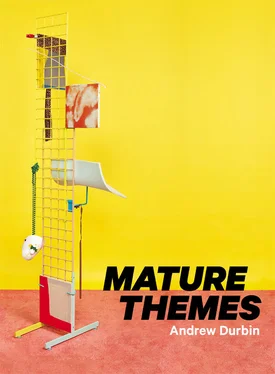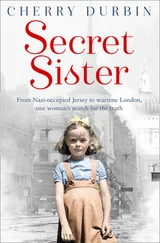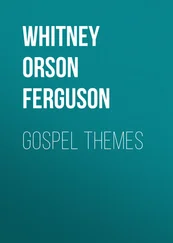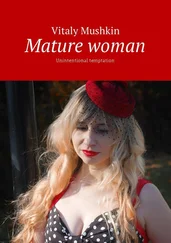Andrew Durbin - Mature Themes
Здесь есть возможность читать онлайн «Andrew Durbin - Mature Themes» весь текст электронной книги совершенно бесплатно (целиком полную версию без сокращений). В некоторых случаях можно слушать аудио, скачать через торрент в формате fb2 и присутствует краткое содержание. Год выпуска: 2014, Издательство: Nightboat Books, Жанр: Современная проза, на английском языке. Описание произведения, (предисловие) а так же отзывы посетителей доступны на портале библиотеки ЛибКат.
- Название:Mature Themes
- Автор:
- Издательство:Nightboat Books
- Жанр:
- Год:2014
- ISBN:нет данных
- Рейтинг книги:4 / 5. Голосов: 1
-
Избранное:Добавить в избранное
- Отзывы:
-
Ваша оценка:
- 80
- 1
- 2
- 3
- 4
- 5
Mature Themes: краткое содержание, описание и аннотация
Предлагаем к чтению аннотацию, описание, краткое содержание или предисловие (зависит от того, что написал сам автор книги «Mature Themes»). Если вы не нашли необходимую информацию о книге — напишите в комментариях, мы постараемся отыскать её.
is a hybrid text of poetry, art criticism, and memoir focused on the subject of disingenuity — and what constitutes "personal experience" both online and IRL when to "go deep" in a culture of so many unreliable communication technologies is to resend a text at 3 AM.
Throughout the book, Durbin’s voice mutates into others in order to uncover the fading specters of meaning buried under the pristine surfaces of art and Hollywood, locating below them the other realities that structure our experience of both.
Mature Themes — читать онлайн бесплатно полную книгу (весь текст) целиком
Ниже представлен текст книги, разбитый по страницам. Система сохранения места последней прочитанной страницы, позволяет с удобством читать онлайн бесплатно книгу «Mature Themes», без необходимости каждый раз заново искать на чём Вы остановились. Поставьте закладку, и сможете в любой момент перейти на страницу, на которой закончили чтение.
Интервал:
Закладка:
Andrew Durbin
Mature Themes
Even if the words, the fantasies, and the desire are all there, there s this awful policeman who is also there, alive
@Horse_ebooksTHE CANYONS
I once met a television producer who asked me if I had any ideas for a movie. We connected on the cramped set of a new reality-style sitcom he was producing for ABC called Modern Family . The director of the pilot introduced us as “two people who should really get to know one another” and praised us both for our work with him in the past. Modern Family is about the short-range social economy of a “non-traditional” family in southern California that remains close despite a variety of cultural interventions. Its politics are asymmetrical: the emphasis placed on the non-traditional in the family unit describes a program of normalization disguised as difference, making the show’s central focus the slapstick of a self-subverting desire in queerness to replicate that structure more perfectly. Difference is translated into the reenforcing dogma of “family values,” renewed (and concealed) by a “progressive” inclusion of gays and immigrants into its image of itself. It is always sunny and the comedy fairly tame, though occasionally the show touches on complex issues like gender roles, aging, and sex politics. This is how the producer described the sitcom to me. He never stopped smiling.
After the director returned to the shoot, the producer put his hand on my shoulder, squeezed it, and said, “Let’s talk.” He took me to a backroom, where production stored an outdoor table and deck chairs next to a grill, on top of which a rack of plastic ribs glistened under the halogen lights. He took a seat in a lawn chair opposite me and called for his assistant, who brought him a cappuccino but didn’t ask me if I wanted anything. The cappuccino’s foam swelled to the edge of the porcelain cup, nearly spilling over onto the little blue serving dish. The fluffed milk looked like the big clouds I saw drifting over the middle of the country as I flew to California the day before. The producer brought the cappuccino to his lips, paused a moment, then set it down after taking a sip.
“A writer like you,” he said, “must have some great ideas for the movies, right?” I nodded. “Let me tell you the kind of thing we’re looking for. It’s simple. We want something fresh. Young. But not necessarily something for teens. It can appeal to teens, of course. We actually want that. Just not… explicitly? It has to be,” he paused to finally take a sip of his coffee, “it has to be something dark. Not too dark, right. No vampires, but still in the Twilight market, if you follow me.” I thought about the Twilight market. He looked at me and flattened his tight smile into something like a frown.
“So do you have anything for me?”
I tried to put together my ideas in my head. Movies are immortal, I thought, but I’d never been sure whether or not Hollywood was right for me. Film was once our window into the present, “public consciousness” and probably the future, too. Now it seems television is the only worthwhile platform for the communication of real ideas. Could movies be that again? The clouds in the movies have always seemed more real to me than those on TV. There would be no clouds on Modern Family , that was certain, and I was not sure I could work in a world without clouds.
I looked at the producer. “I have an idea,” I said, “for a film titled The Canyons .”
The producer smiled. “OK. Shoot.”
I pulled out my notebook and read from it: “In The Canyons , the post-Fordist mode of production has collapsed and its constituent parts have broken down under the strain of the resolve of those who oppose it and those who have worked to create new, virtualized alternatives exploding in the street. Nevertheless, their mechanics, and therefore the engineering requisite to dismantle them, remain permanently invisible to those it controls. Your beautiful, holographic face shimmers at the horizon with every totality that underlies my suspicion of your resurgent unity, despite what you do to contradict the burgeoning technologies that grapple with you. I’ve always had this feeling, almost always had this sense of the facts, that the importance of resolution over craft is one of the most important shifts in art making besides the creation of Photoshop and the invention of the death of painting. There is no plot in The Canyons , only its process and a description of the potential of this process as it scales the medium that subsumes you. While the network of these realities is limited, it is singular in its reinforcement of the so-called norm, under which lie the halogen lights that give every tile on the kitchen floor the ambience of a mansion in the Hills. Beneath those lights, there are only more lights. In The Canyons , everything is self-erasing and its only goal is to force its viewers to stare into its prismatic light until they lose focus in the digital assemblage that unfurls there, a total work in which Lindsay Lohan, the star of the film, is purged in flames and emerges as pure fantasy set to the dimensions of the tyranny of her infinite replication across all screens, on all devices. It is not the future. It is the present. It is a lovely, nostalgic music for a Hollywood we have dreamt of but never known. The process disassembles and returns to hazardous life as always, bringing you with it through its impossible survival. Eventually Lindsay dissolves or moves her hand to her face to pull it away and reveal her true self, the flat complex of appearances that manifests on the surface as a system of revelations that remain true even when proven false.”
I bought popcorn for the usual price but snuck in my own soda. I went into theater 7 on the left and quickly found a seat before the film started. After a number of trailers for all the movies I couldn’t wait to see, Lindsay Lohan’s distraught face appeared on the screen, tucked into the wide light of the desert and the smoky wreckage of her Porsche. Her face was smudged with dirt and makeup as she crawled out from a roadside ditch, where her car had crashed after one of its tires hit a spike on the road in one of the desert’s numerous obstacles that spares a starlet but kills everyone else. A few stray clouds gathered above her. The camera panned to reveal the empty expanse of earth while the light swelled around her and she summed up her future on the highway. She wondered whether or not she would die there, stalled halfway to Los Angeles. I thought about her famous quote: “Hopefully people will remember me for my work, not my car accidents.” The screen went dark and the words
THE CANYONS
appeared.
I had read the film’s synopsis on Fandango earlier in the afternoon when I purchased my ticket: Paul Schrader’s new film, The Canyons , written by novelist Bret Easton Ellis, is a contemporary noir about the dangers of sexual obsession and the knots ambition produces in the lives of two characters, played by Lindsay Lohan and James Deen, a famous straight porn star whose substitution of an e for an a produces an uncanny transformation when you watch him “pound the shit” out of some blonde costar, erasing, by the audacity of his enthusiasm for fucking, any memory of the James Dean whose body exploded with equal enthusiasm in a car accident much like Lindsay’s car exploded in the desert in The Canyons . She lives and he died. I thought: This is the film I have been waiting for, and ordered my ticket.
The Canyons is about a group of young people in their mid- to late twenties and how one chance meeting in the past unravels their lives, resulting in deceit, paranoia, and the cruel mind games that lead to ultimate violence, ultimate in that the slashing of Lindsay Lohan’s throat closes the film. After the first scene, the film cut to the opening credits, then flashed back in time. Lindsay lounged in a blue tub, canopied by houseplants lingering off the edge of the bathroom windowsill. She ran her manicured hand over the edge of the tub, a gesture the camera zoomed in on. She moved her hand slowly, back and forth, letting water drip off her fingers to the tile floor below.
Читать дальшеИнтервал:
Закладка:
Похожие книги на «Mature Themes»
Представляем Вашему вниманию похожие книги на «Mature Themes» списком для выбора. Мы отобрали схожую по названию и смыслу литературу в надежде предоставить читателям больше вариантов отыскать новые, интересные, ещё непрочитанные произведения.
Обсуждение, отзывы о книге «Mature Themes» и просто собственные мнения читателей. Оставьте ваши комментарии, напишите, что Вы думаете о произведении, его смысле или главных героях. Укажите что конкретно понравилось, а что нет, и почему Вы так считаете.











